5 Shades of Anti-Corruption Justice
This year, the High Anti-Corruption Court turns 5. Since its inception, much has been said about both the achievements and the challenges that impede reaching the objectives of criminal proceedings. However, these five years of the HACC's operation have demonstrated something else.
Almost all cases against senior corrupt officials are closely monitored by the public. No surprise, as Ukrainian society considers corruption to be one of the most acute problems, so a fair punishment for corruption-related crimes is crucial to us. The key word here is fair.
In order for everyone to assess the path of administering such justice, that is, to monitor how the Anti-Corruption Court hears cases, we at Transparency International Ukraine are launching the HACC Decided platform, where you can not only view all court decisions, but also get high-quality analytics provided by experts.
Advertisement:What happens to the sentences that the HACC and the HACC AC have already passed? Which have become landmark rulings? In this material, we cover some decisions of the HACC adopted over these 5 years, which we consider illustrative--both for convicted persons and in general for further case law.
All trial circles in the case of Solvar
The case of former MP Ruslan Solvar is one of those that has passed all court instances, some even twice, over the five years of the HACC's operation.
Although the recent decision in the case was pronounced in August 2024, it may be not the end.
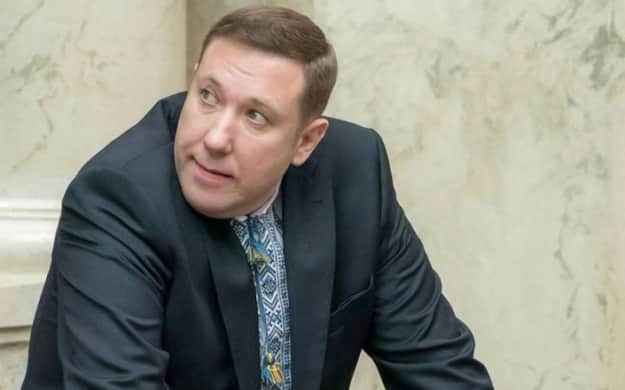
Former deputy of the People's Republic Ruslan Solvar
photo from his FacebookAll because there was no agreement within the High Anti-Corruption Court on how to qualify the crime Solvar was charged with--the abuse of MPs to receive compensation for apartment rental. This is not a classic example of abuse of office, but it was about MP guarantees, which are an integral part of his status. MPs can receive compensation for renting a hotel room.
Such a guarantee is provided if the MP has no housing in Kyiv but is "registered" in a settlement at a distance of more than 30 kilometers from Kyiv. Discussions were the most heated in regard to actions that should be taken if an MP receives compensation but has no right to do so. In June 2021, Ruslan Solvar was acquitted by the first instance because it established that the MP could not set mandatory requirements for the Office of the Verkhovna Rada to compensate for the costs of renting a hotel room.
That's because officials of the Office of the Verkhovna Rada are not subordinate to MPs but have other managers. That is, MPs do not use their power when submitting such applications. However, in September 2022, the former MP was convicted by the HACC Appeals Chamber.
Judges found that the accused did not abuse authority, but deliberately used the guarantees of housing provision contrary to the interests of the service and did not report that he had inherited an apartment in Kyiv, thus having lost grounds for compensation. That is, he committed a criminal offense under Article 364, part 2 of the Criminal Code of Ukraine, abusing his office, namely the opportunities provided to him by the status of a member of parliament. The judges of the appellate instance decided that they had the right to change the qualification in terms of what exactly the MP abused--authority or power, and ruled in view of the abuse of power.
However, this was not the end of Solvar's adventures and his guarantees as an MP. In December 2023, the Supreme Court overturned the decision of the HACC AC and sent the case for a new trial. According to the judges of the Supreme Court, the appellate court, although it is entitled to provide a different legal assessment of the factual circumstances established during the criminal proceedings, cannot aggravate the legal situation of the accused by such a change.
Solvar defended himself against the abuse of authority, which he had been charged with, and was convicted of abuse of power. Thus, the Supreme Court found a significant violation of the requirements of the criminal procedural law and improper application of the law of Ukraine on criminal liability. As a result, the contested verdict was overturned, and a new trial was appointed in the appellate instance.
Finally, after another trial, Solvar was sentenced to 3 years in prison. Interestingly, the final decision was delayed; first, Solvar failed to appear in court for a long time due to illness, and then he signed a contract with the Armed Forces of Ukraine. This turned to be a new challenge for the HACC as in the course of the following two months, the court could not hold a hearing because of the former MP serving in the AFU.
Finally, the judges did pass a verdict, and since Solvar was convicted, his contract should be terminated. Thus, unwittingly, Ruslan Solvar contributed to the solution of an important problem in criminal law--the definition of the concept of "abuse of authority." There are still many such cases in the High Anti-Corruption Court, and we are sure that not all accused are happy with this development of case law.
Mahuta and Shulezhko case: acquittals through legislative gaps
Since the very launch of the HACC, we have emphasized that justice is not solely about the conviction of a person, but about quality legal proceedings. It is unlikely that all law enforcement agencies, even the NABU, make no errors in their work.
If the court finds mistakes, there should be an acquittal. The decision in the case of Roman Mahuta, chairman of the Accounting Chamber, and Maria Shulezhko, member of the Accounting Chamber, is one such example.
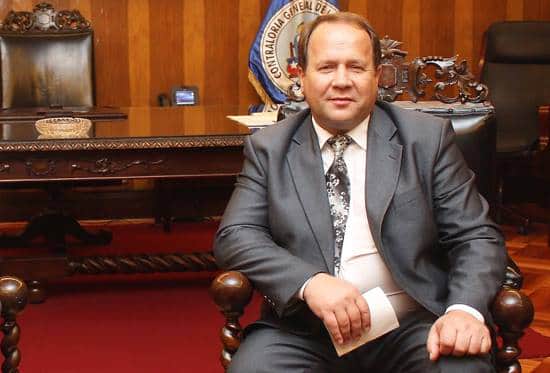
Roman Maguta, ex-head of the Accounting Chamber of Ukraine
photo: Larysa Sargan's FacebookThe prosecution believed that Roman Mahuta, former chairman of the Accounting Chamber, and Maria Shulezhko, ex-member of this body, illegally seized an apartment provided in the course of office through privatization in 2014. The investigation argued that Shulezhko did not need official housing, but she received it after her nephew had privatized the apartment and given it to her as a gift.
However, the SAPO prosecutor did not provide any formal violations of the current legislation. The court, for its part, pointed to this gap in the activities of the prosecution. It paid special attention to the quality of the legislation on the exclusion of housing from the list of that provided in the course of service.
Thus, the judges pointed out the lack of clear criteria in the laws, according to which it can be established that the head of the institution, in this case--Roman Mahuta, unreasonably applied for the exclusion of housing from the list of that provided in the course of service. This made it difficult to assess his actions in the context of abuse of office. Overall, the shortcomings in the legal regulation of the treatment of official housing to improve the living conditions of employees of enterprises, institutions, and organizations, have long been known.
It was due to these shortcomings that the court recognized that in this case, there were no grounds for a dynamic interpretation of the Article 191 provisions of the Criminal Code of Ukraine, in particular, the concept of "abuse of office." Notably, the pre-trial investigation and trial of this case lasted from June 23, 2016, to April 6, 2023. In November 2023, the HACC AC confirmed the legality of the acquittal. This case shows us that lacunae in legal regulation can lead to an incorrect assessment of the circumstances by the prosecution.
Thus, in this case, after a long trial, an acquittal was pronounced.
Indictment, despite the opposition to justice: 7 years of imprisonment for PGO ex-official Sus
The convicted Dmytro Sus is known for the fact that he used to work in the so-called "Kononenko-Hranovskyi Department" in the Prosecutor General's Office, a unit that investigated particularly important cases in the economic sphere and earned its title by the names of MPs from the Petro Poroshenko Bloc, close to President Poroshenko.
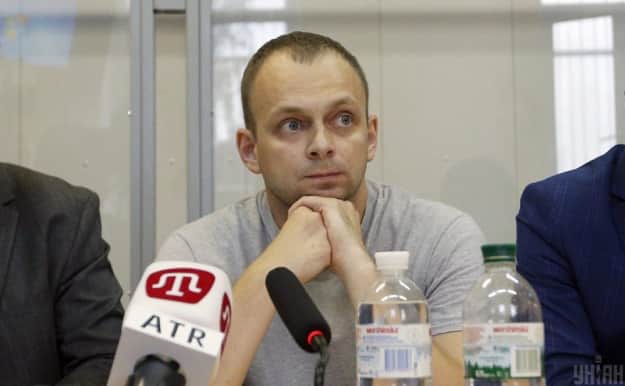 Dmytro Sus, PGO ex-officialphoto: UNIAN
Dmytro Sus, PGO ex-officialphoto: UNIAN
According to the investigation and the court of the first instance, Sus abused the powers of the investigator and the head of the investigation when looking into cases of illegal gambling. According to law enforcement officers, and the same position was supported by the judges of the HACC, the HACC AC, and the Supreme Court, Sus misappropriated UAH 423,000 and also sold 11 gambling tables, 32 chairs, 10 slot machines, an electronic roulette, 12 displays, and a metal statue of a woman. The HACC began hearing the case of Sus back in September 2019 and delivered a verdict in January 2023.
Importantly, while considering the case, the Anti-Corruption Court confirmed most of the charges presented by the SAPO prosecutor; however, it found the charges of misappropriation of a DVR from Sus's office unjustified because the defendant, according to the evidence, was not present at this search. As a result, Sus was found guilty of misappropriation and embezzlement of property obtained during searches and sentenced to 9 years in prison with deprivation of the right to hold certain positions for 3 years and confiscation of property. But in the future, the HACC AC reduced the sentence to 7 years, and the Supreme Court confirmed the legality of such a conviction.
This case is important because even though the accused was hiding in various hospitals and despite other obstructions to justice, the court still considered the case on the merits, and Dmytro Sus was brought to real criminal liability.
Statute of limitation expiration: ex-judge Yushchuk exempted from punishment
We often talk about the statute of limitations in corruption cases, and for a good reason. The case of ex-judge Yushchuk is a vivid example of the need to cover such a topic and introduce real solutions to the problem.
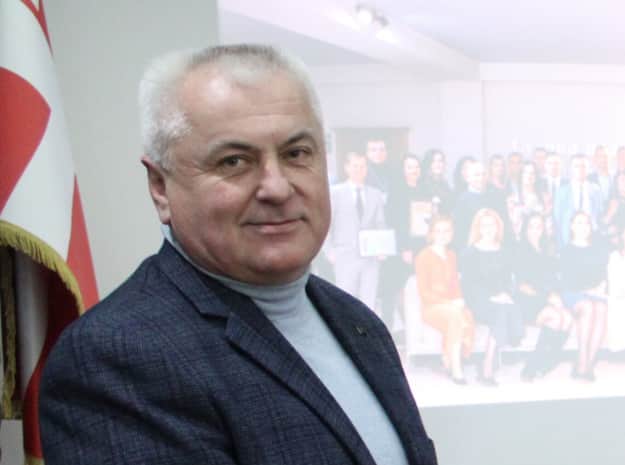 Ex-judge Oleg YushchukPhoto: Judiciary of Ukraine
Ex-judge Oleg YushchukPhoto: Judiciary of Ukraine
Oleh Yushchuk, former judge of the Lutsk City and District Court of Volyn Oblast, was charged with offering a bribe of USD 500 to influence a judge who was trying a person for DIU. That is, Yushchuk was accused of abuse of influence, which is criminalized under Art.
369-2, part 2 of the Criminal Code of Ukraine. Yushchuk's alleged offer took place in December 2017, and in March of the following year, the ex-judge informed the accused that the money was to be transferred through the attorney. Yushchuk was detained while receiving the marked bills.
Initially, the case was heard by the Mlynivskyi District Court of Rivne Oblast, but later, it was transferred to the HACC--after its establishment. The trial in the court of the first instance lasted almost 3 years, and the first appellate review lasted almost a year. On July 20, 2022, the HACC found Oleh Yushchuk guilty of demanding money to influence his colleague's decision.
He was imprisoned for 3 years. The appellate instance did not agree with some evidence used by the first instance, but it did not change the sentence. For its part, the Supreme Court, in October 2023, found that the HACC AC did not fully assess all the arguments of the defense thus allowing contradictory conclusions, so the verdict was overturned.
The case was sent for a new trial in the appellate instance. In April 2024, the HACC AC once again changed the verdict in terms of the evidence base. The judges stated that some covert investigative actions were carried out without the permission of the investigating judge, but the punishment remained the same.
However, this did not affect Yushchuk in any way; the case was heard for so long that he was eventually exempted from serving his sentence due to the expiration of the statute of limitations. But for the mistakes of the pre-trial investigation body and different approaches to assessing the legality of evidence, Yushchuk could have been serving a real sentence; this did not happen. This case also shows the development of the practice of applying the law in different factual circumstances.
Criminal law misinterpretation in the case of the State Aviation Service ex-head Antoniuk
The events in the case began in 2014, and we witnessed the outcome in July 2024.
During 2014, passenger flights on the Kyiv-Tehran-Kyiv route were operated by two airlines--UIA and Ukrainian-Mediterranean Airlines (UM Airlines). According to international agreements, the number of flights on this route should not have exceeded four per week--and with only one airline. However, this limit was exceeded, which is why Iran repeatedly appealed to the State Audit Service of Ukraine.
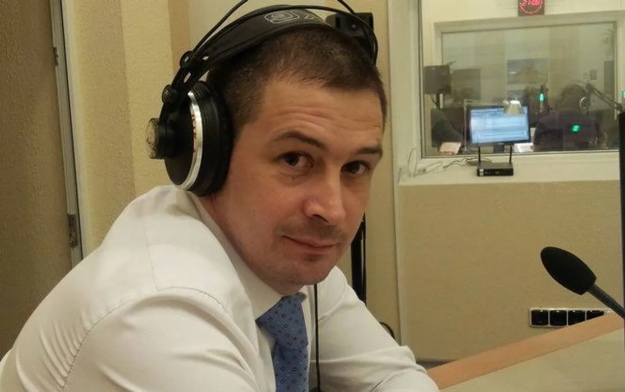 Ex-head of the State Aviation Service Denys AntonyukPhoto: Facebook
Ex-head of the State Aviation Service Denys AntonyukPhoto: Facebook
In the end, in November 2014, Iran did not allow the UIA plane to Tehran, so the then head of the State Aviation Service Denys Antoniuk instructed the head of one of the departments to reject the application of Ukrainian Mediterranean Airlines for an additional flight, thereby giving preference to the UIA.
As a result, UM Airlines flight was canceled, the airline suffered UAH 250,000 of losses. The former head of the State Aviation Service was accused of using his official position contrary to the interests of the service, acting in the interests of the UIA. From September 2016 and in the following three years, the case was heard in the Shevchenkivskyi District Court of Kyiv and then transferred to the HACC. In January 2023, the HACC issued a guilty verdict, which was confirmed by the Appeals Chamber in less than a year.
But the case was referred to the Supreme Court, and its decision caused a heated debate. The cassation court found that there was no violation of the law that Denys Antoniuk would have allowed, and therefore he should be acquitted. This case is interesting because the Supreme Court narrowly interpreted one of the signs of abuse of office.
This caused a discussion in the legal community. The point is that in the Criminal Code of Ukraine, one of the signs of abuse of office is the commission of an act contrary to the interests of the service. The Supreme Court moved away from the established practice of its interpretation and elaborated on its content, narrowing it to a violation of the law. Antoniuk was accused of failing to comply with the order of the Ministry of Infrastructure on the procedure for granting and revoking the rights to operate air lines.
However, the issuance of this order fell within the competence of the State Aviation Service, and not the Ministry, therefore, in the opinion of the Supreme Court, Antoniuk, as the head of this service, was not obliged to comply with it. Although before that, the HACC and the HACC AC had ruled otherwise. Since this order was further overturned by the administrative court, the Supreme Court, for its part, decided that non-compliance with this order could not be considered abuse of office.
***
Over the five years of its operation, the HACC has passed truly different sentences and faced truly different problems both before and after the rulings.
However, all these decisions eventually formed new, special case law, which lays the foundations for further truly effective hearing of corruption cases. That is why it is so important for civil society to effectively monitor and evaluate the prosecution of senior corrupt officials and share the results of this monitoring with the Anti-Corruption Court. Thus, through joint efforts, we will achieve the desired results.
Pavlo Demchuk, Legal Advisor at Transparency International Ukraine
Disclaimer: Articles reflect their author's point of view and do not claim to be objective or to explore every aspect of the issues they discuss.The Ukrainska Pravda editorial board does not bear any responsibility for the accuracy of the information provided, or its interpretation, and acts solely as a publisher.
The point of view of the Ukrainska Pravda editorial board may not coincide with the point of view of the article's author.